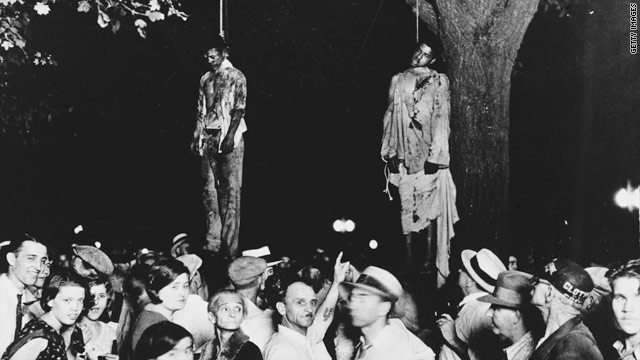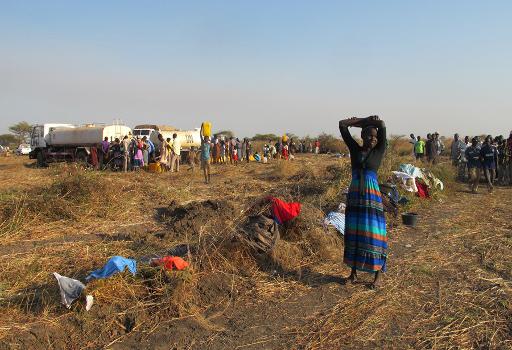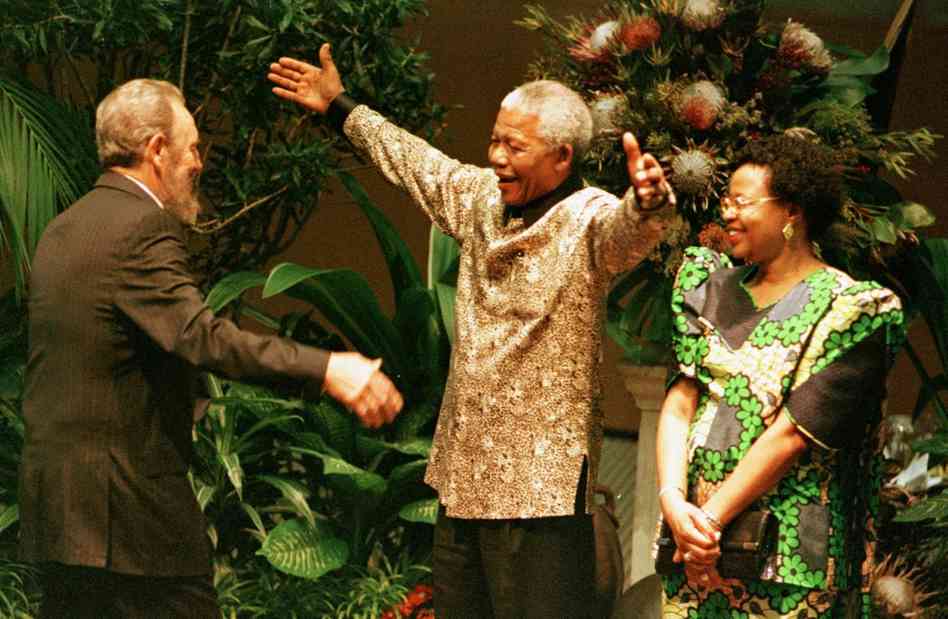Right now, I'm noticing a lot of angry Africans and well meaning White Feminists are criticizing Ms. DeFranco. I've also seen her less then sincere statement regarding her decision to cancel the show due to the outcry that has accompanied it's announcement. Still, instead of reacting to her, I'd like to frame this in the context of her decision, along with Essence's decision. You see, the problem isn't that a White woman is insensitive to the legacy of slavery, although that's obviously a part of the problem here. Beyond that issue, a deeper part of the problem is that people are totally ignorant to how this society came to be and how it exists. An incredible as it is, it's understandable how this can be. We have been propagandized to accept lies regarding the history of the Western world for 500+ years. Columbus discovered America. George Washington, Thomas Jefferson, etc., are our "forefathers." Thanksgiving and the 4th of July are shoved down our throats annually to legitimize slavery and the theft of this land from the Indigenous people. Plus, the capitalist system trains us to view history from the individual perspective and not as the story of the masses of people, which is what history really is. Nelson Mandela was a great man and we can never reach the level of development that he displayed. Martin Luther King was a saint and there will never be another one like him. Those are the lessons our youth are taught everyday. As a result, people begin to see history as something far removed. Something that has no direct relationship to our current day reality. Consequently, people like Ms. DeFranco, who White Feminist activists I speak too seem to hold with some regard as a contributor to the movement, are able to disconnect from the reality of history and what role slavery has on the very existence of this society today. People cannot even make basic connections like the fact plantation houses like Nottoway reflect White wealth that has been passed down through generations at the expense of African people, which explains why African wealth is negligible compared to White wealth. Instead, we are told this disparity exists because White people work so much harder. So the irony that a concert on a slave plantation today is going to financially benefit someone who has gained fortune from the slave labor performed by my ancestors escapes someone as apparently as conscious as this Ms. DeFranco appears to be. The fact African people were bred and sold like pit bulls for what still amounts to 71% of the time we have spent in the Western Hemisphere (which may explain why so many of us call each other dawgs) is lost on people today. The fact the very banks that finance this society today were started, along with the insurance and many other industries, on the back of the trans-Atlantic slave trade, is lost on the overwhelming majority of people here who instead believe falsely that those who have wealth worked for it and those who don't - didn't. The truth is that White people would have to work for the next 300 years to match the work African people have already put out, without being compensated for it, to build this society. The fact that today everyone everywhere can say something about the kings of the Roundtable in Britain, Greek and Roman mythology, European history over the last 100 years, and European cultural centers like Italy, France, and Germany, while the most anyone can tell you about Africa is there are animals and fighting going on there (as if no unrest exists in Europe). In fact, people ask me all the time about safety in Africa which is humorous to me. I've lived in some of the most notorious neighborhoods in the Western U.S. and I've traveled throughout Africa. I know I'm much safer in Accra, Ghana, than I could ever be in pretty much any U.S. city. This is simply an example of how the legacy of slavery impacts us today. Africa is forgotten and misrepresented to justify it's exploitation and the subjugation of it's people. The Trayvon Martins in every city are discredited for this reason. The so-called achievement gap with African youth is dismissed for this reason. The n word can be heard in music played in department stores and no one blinks - especially African people - for this reason. The fact there are 64,000 African women missing with nothing being said about it when it becomes the main news story when a young White woman turns up missing happens for this reason. The fact people come into the coffee shop I'm in right now and feel there's nothing wrong with blatantly staring at this African man on his lap top (because I'm not rapping or doing anything else to fulfill their sick stereotypes) happens for this reason. All of these things and many more I could list happen as a result of the mis-education around slavery. And the same is true for the history of the Indigenous people because both are the history of this part of the world that the ruling classes desire to never be fully understood by the masses of people who are here (with more coming everyday). Instead, you are to subconsciously believe that it's all about personal decision making and creating the reality you want without addressing the reality people experience on a daily basis.
It not just about Ms. DeFranco. I personally wouldn't know her if she walked right up to me and slapped me. It's not just about Essence either. I realize we use these people because of their fame to illustrate the problem with issues like racism and sexism, but we can't stop there. We have to take these things as opportunities to make commitments to build stronger bridges around creating a political education movement around justice. You see, until we increase people's consciousness, we will never create the conditions to eliminate the type of stupidity Ms. DeFranco's absurd concert represents. And it's critical that Africans, Indigenous, White activists, Feminists, etc., stop seeing the world solely through the lenses of your struggle. Justice is universal. So make a pact to support justice, even if you have a hard time seeing the connection to your issue(s). Reach out to groups beyond your sphere and find out what's happening with them. Raise difficult issues that aren't easily discussed in your circles and do this in an organized fashion (not as an individual or just on a whim, but in a consistent and ongoing process with other people with an objective). Sounds hard because it is hard, but if you were offended by the DeFranco story, this is the only way to address it. Unless all you want to do is just complain about it. If so, this piece isn't written for you.
So to my White comrades, don't just use this as an opportunity to show everyone how against racism you are. Use it as a stepping stone to really start organizing White people. They need organization badly! To my African family and other folks of color in the struggle, stand up for justice and understand our suffering isn't the only suffering happening. We need organization badly also! And for everyone, support independent organizations struggling to fight against the injustices. The best way to do this is provide material support and social support in whatever way you can. Get involved in organizations yourself and support existing ones and/or start one of your own. Be there when you say you are coming (on time) and come ready to work, every time. Get whatever help you need to stop being so self centered. Humble yourself and build yourself into the soldier you will need to be to make a positive ongoing contribution. Support those who are leading sincere efforts to make change and stop people from tearing them down. Build positive relationships with people and become well rounded. Balance serious struggle with rest and enjoyment of what life has to offer. Learn to laugh - especially at yourself - and look at each day as an opportunity to fight and live again. What does doing all of that have to do with the concert at Nottoway Plantation? Everything!! Because if the enemy has spent 500 years getting us to this confused state it's going to take an intense effort to turn this thing around. We will need to be politically mature enough to understand the change won['t happen in our lifetime. Instead of that self serving perspective, we need to realize that our role is to lay a foundation and leave something for those coming after us to work with. We are going to need everyone so when this latest story dies down and when the next one comes, the question you should be asking yourself is how you are building capacity to stop the cycle? How do you measure progress in this regard? Me? I'm tired of talking about the stupidity of entertainers because I know if we are organized they will have to be accountable to us. I'm ready to make that happen. Anyone want to join in?





 RSS Feed
RSS Feed
